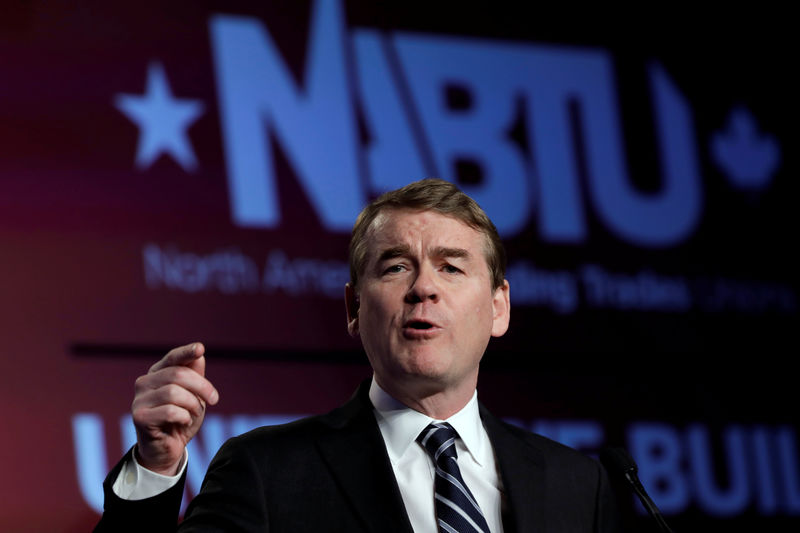By Timothy Gardner
WASHINGTON (Reuters) - U.S. Senator Michael Bennet, a 2020 Democratic presidential contender, unveiled a plan on Monday to tackle climate change with a focus on slashing emissions from farming and ranching and conserving nearly a third of U.S. lands.
Bennet is distinguishing himself from rivals, such as Governor Jay Inslee of Washington, who are pressing for more aggressive plans to fight global warming, by making land management and agriculture a large part of his climate platform.
The senator from Colorado, a state rich in farms and ranches, said his climate plan is the only one to focus on agriculture and conserving land to sequester carbon dioxide while also seeking emissions cuts from power plants, transportation and heavy industry.
"We need to scale the efforts of our farmers and ranchers to make them part of the solution," Bennet told reporters in conference call.
His plan would boost certainty for farmers to grow and invest in advanced biofuels, convert food waste into energy, and help farmers and ranchers transition to voluntary practices such as reforestation that helps the land store carbon emissions.
Bennet would establish a council including seats for labor, farmers and ranchers, scientists, business leaders and greens to develop more details of the plan by day 100 of his presidency.
"The most important thing we've got to figure out how to do is to build a broad constituency in America to take on climate change," he said.
Bennet is competing in the most crowded Democratic field in the modern political era, with more than 20 candidates vying to challenge Republican President Donald Trump.
Democratic rivals including Inslee, former Congressman Beto O'Rourke of Texas, and Senator Elizabeth Warren of Massachusetts have unveiled details of their climate plans in recent weeks. Democratic front-runner and former Vice President Joe Biden said last week he will unveil his climate plan “very shortly.”
Bennet's plan also seeks 100% net zero emissions no later than 2050, which he said was in line with scientific consensus on fighting climate change. Inslee's plan sets a goal of achieving 100% zero-emission electricity by 2035. Bennet did not embrace a carbon tax or other strategies to drive down emissions, but said the approach would be figured out early in his presidency.

The plan would also create a "climate bank" to drive $10 trillion in private investment in innovation and infrastructure for domestic and international markets. It seeks to create 10 million green technology jobs in 10 years.